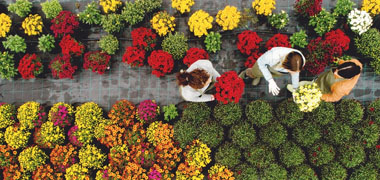
How do I become a Livestock Manager in Hobart?
Get qualified to work as a Livestock Manager with a course recognised across Australia. Speak to a training provider to learn more.
Course providers in Hobart
The following providers offer Livestock Manager courses in Hobart, Tasmania.








Related career opportunities
Browse occupations related to Livestock Manager
Further reading


Most popular agriculture courses
8th April 2022
Choosing a security licence course in Australia: A step-by-step guide for jobseekers
10th November 2023All livestock manager courses
Livestock Manager careers
If you are considering a career in livestock management, enrolling in Livestock Manager courses in Hobart is a fantastic start. Hobart, known for its vibrant agricultural community, provides excellent training options to help you gain the skills necessary for this growing field. With a variety of courses available, including Vocational Education and Training (VET) and Higher Education programs, you can find the right fit for your career goals and aspirations.
For beginners, there is a valuable course available, such as Use Firearms to Humanely Destroy Animals AHCPMG304. This course offers foundational knowledge for those who are just starting their journey in livestock management. It prepares you for various tasks involved in the humane treatment of animals, which is a key component of being a successful Livestock Manager.
If you have prior experience or qualifications, there are advanced options like the Certificate IV in Agriculture AHC40122, Diploma of Agriculture AHC50122, and Diploma of Agribusiness Management AHC51422. These courses are ideal for learners looking to enhance their skills and move forward in their careers. Graduates can also consider further studies such as the Graduate Diploma of Agribusiness AMP80215, which provides advanced knowledge in agribusiness practices.
In addition to gaining qualifications, exploring related job roles can help expand your career pathways. As a Livestock Manager, you might also find interest in positions such as Pet Groomer, Animal Attendant, or even a Zoo Keeper. Each job role supports different aspects of animal care and management, providing diverse options for your career.
Hobart is a hub for animal welfare and veterinary studies as well, with courses available in Animal Welfare and Veterinary and Animal Care. These fields of study complement the skills you will develop through Livestock Manager courses in Hobart and ensure that you are equipped to pursue a fulfilling and impactful career in animal management.
